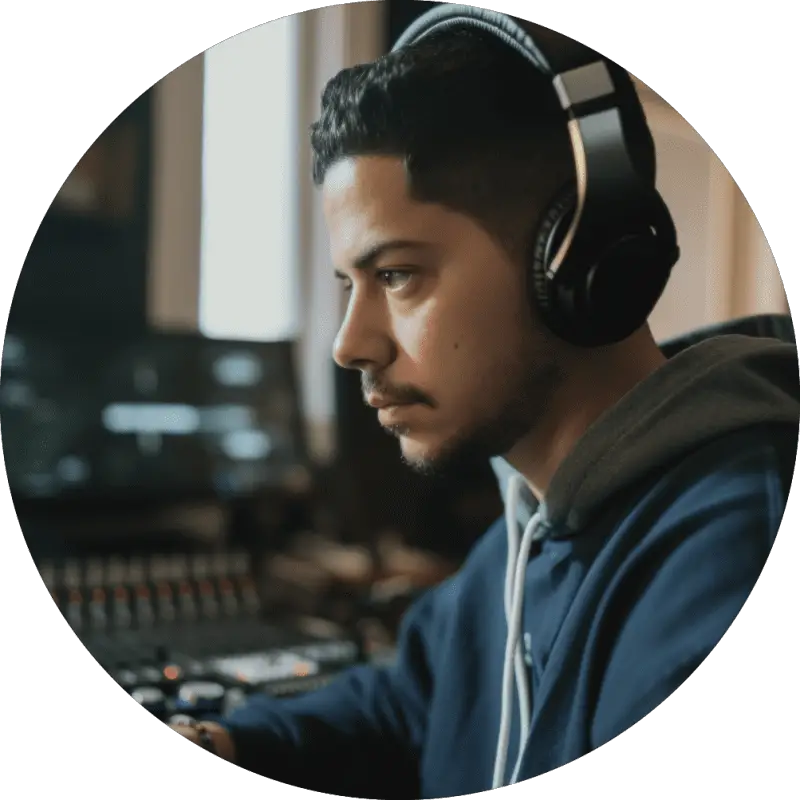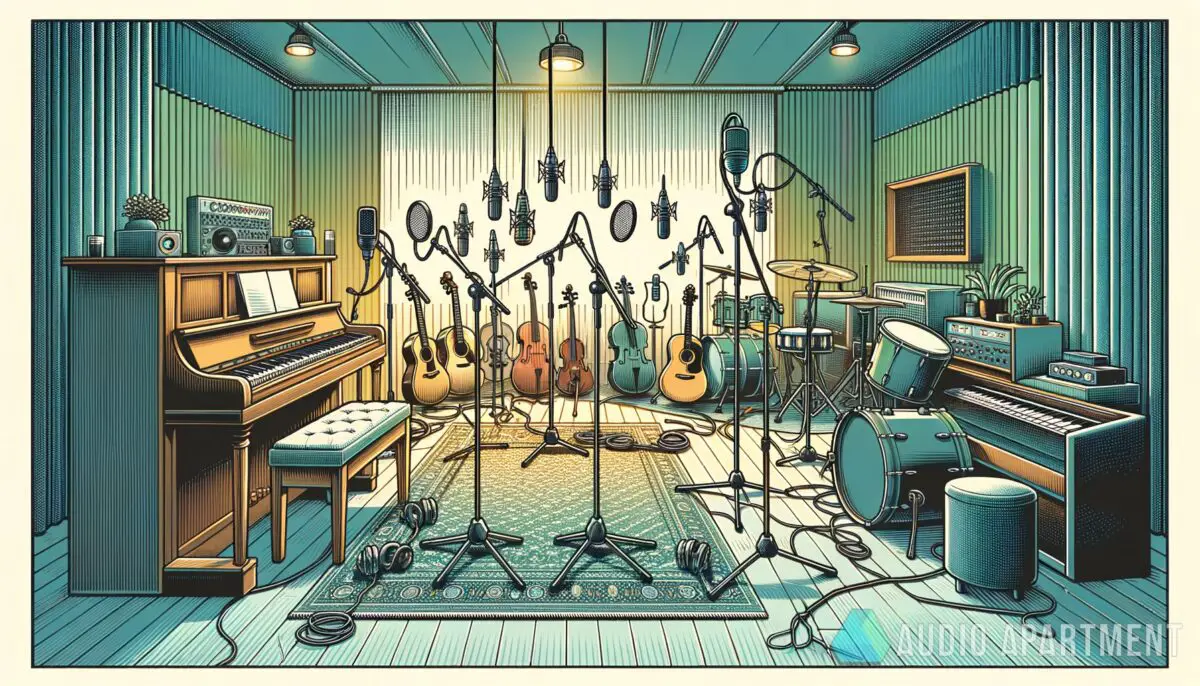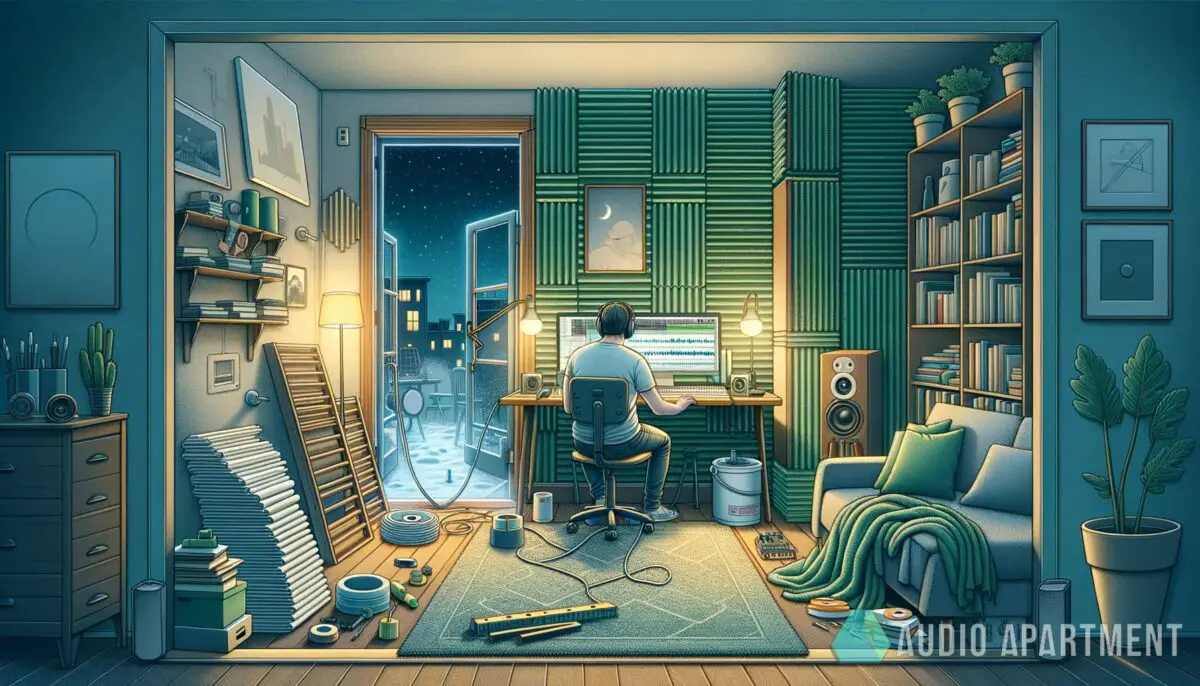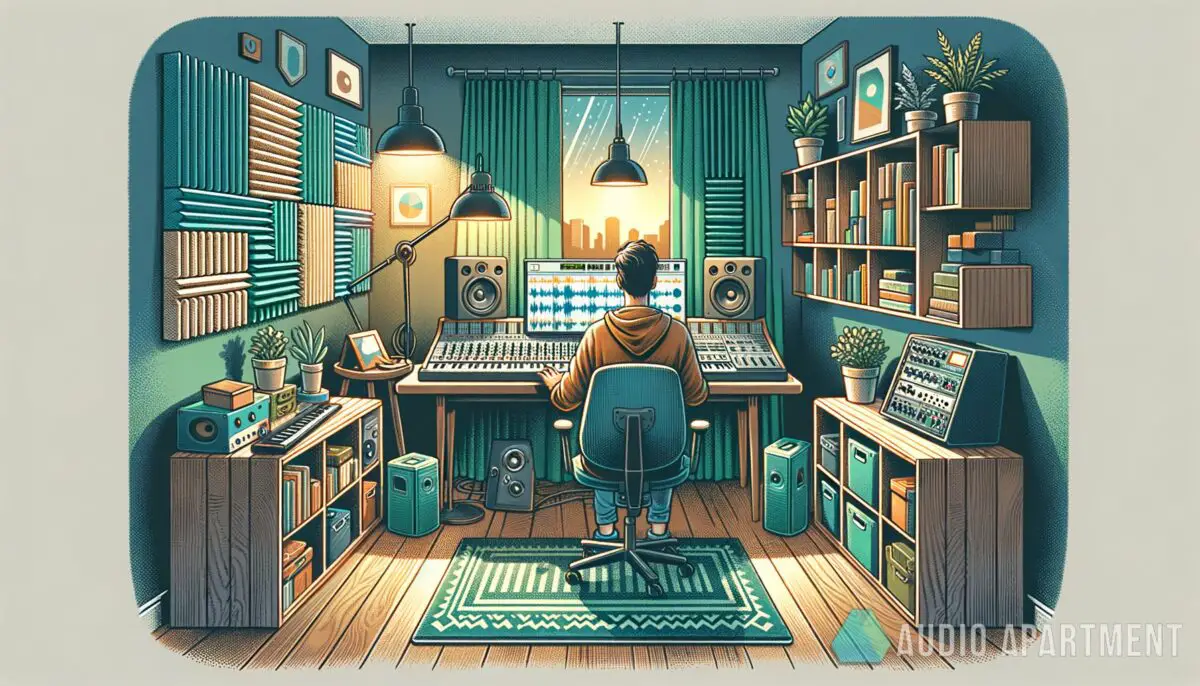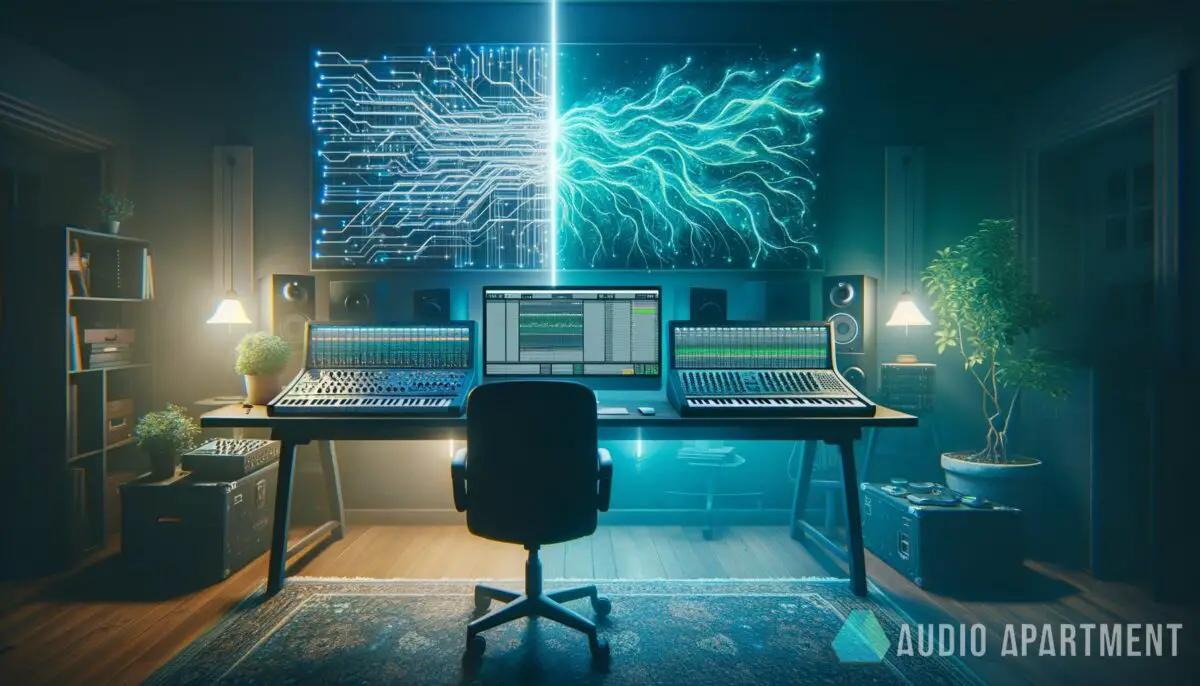As a seasoned music producer, I’ve seen my fair share of laptops come and go in the studio. I’ve mixed tracks on everything from ancient desktops to the latest and greatest portable machines. And let me tell you, not all laptops are created equal when it comes to mixing music. You should know what laptop specs you need for mixing music.
Sure, you can get by with a cheap and basic laptop, but if you want to take your mixes to the next level, you’ll need to pay attention to the specs. But don’t worry. I’m here to guide you through the minefield of laptop specifications and help you find the perfect machine for your home recording studio. Let’s dive in!
What laptop specs do you need for mixing music? To mix music on a laptop, you’ll need a machine with a fast CPU, plenty of RAM, and a good amount of storage space. A large display and a decent graphics card can also be helpful. Regarding connectivity, make sure your laptop has all the ports you need, including USB and audio inputs/outputs. And if you want to take your studio on the go, a lightweight and portable laptop is a must.
Why do you need a good computer to mix music?
A good computer is important for music mixing because it can handle the demanding tasks involved in recording and mixing multiple tracks and using software plugins. A fast and powerful computer with plenty of RAM and a solid-state drive (SSD) will ensure smooth and efficient mixing sessions without any lag or performance issues.
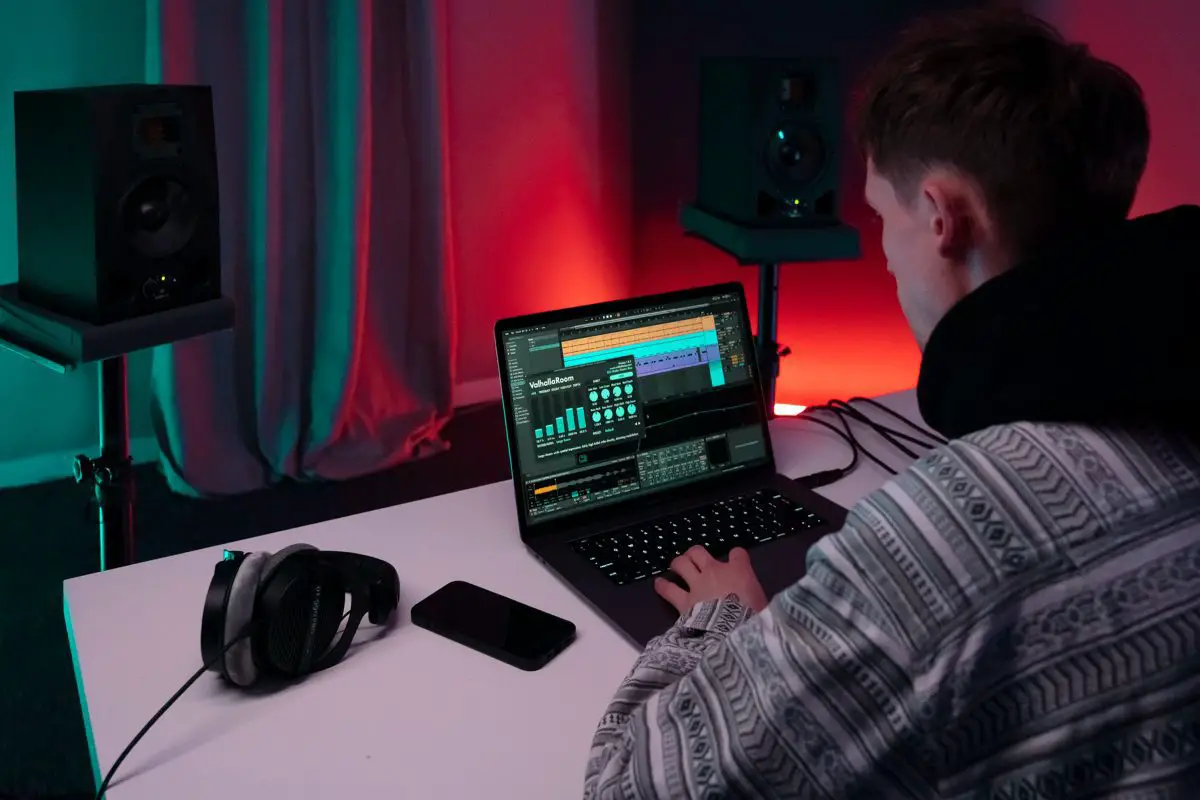
In addition, a good computer can also make it easier to edit and fine-tune your tracks, as well as use visualizers and other software to create immersive, dynamic audio-visual experiences.
AKAI Professional MPK Mini MK3

AKAI Professional MPK Mini MK3
Is a laptop enough for music production?
Yes, a laptop can be sufficient for music production. Modern laptops are powerful enough to handle the demands of music production software, and many come with built-in audio interfaces and other features that make them well-suited for recording and mixing music.
But be sure the laptop you choose has the features you need. Search for a laptop that has a fast central processing unit (CPU), lots of random access memory (RAM), and preferably a solid-state drive (SSD) for storage. You’ll also want to consider the type and number of ports and connections, screen size, and resolution.
What specs should you look for when buying a laptop for mixing?
When buying a laptop for mixing music, there are a few specifications you should consider. Here are some key specs to look for:
1. Processor
Look for a laptop with a fast processor, preferably an Intel Core i7 or i9 or an AMD Ryzen 7 or 9. Don’t make the mistake of skimping on the processor. After all, the processor is the brains of your operation – it’s the engine that drives all of your software and plugins.
A weak or underpowered processor can slow down your entire recording process, causing frustrating delays and interruptions. This is especially frustrating when you’re in the middle of a creative flow and don’t want to be bogged down by technical issues.
2. RAM
Your laptop should have at least 8GB of RAM, but ideally 16GB or more. This will allow you to run multiple applications and plugins simultaneously without any performance issues.
…having plenty of RAM will also make it easier to edit and fine-tune your tracks without encountering any lag or glitches.
Plus, having plenty of RAM will also make it easier to edit and fine-tune your tracks without encountering any lag or glitches. Believe me; it’s worth the investment, so splurge on the RAM and make your mixing and recording sessions smooth and effortless.
3. Storage
As a music producer, you know that it’s important to keep all of your sick beats in one place. But if you don’t have enough storage on your laptop, you might find yourself running out of space for all of your tracks, samples, and projects.
That’s why it’s crucial to make sure you have enough storage when buying a new laptop for your home recording studio. Look for a laptop with a solid-state drive (SSD) instead of a traditional hard drive (HDD). An SSD is faster and more reliable, which is important when working with large audio files.
A minimum of 256GB of storage is recommended, but ideally, you should look for a laptop with at least 512GB. But don’t just stop at the minimum—the more storage you have, the more room you’ll have to experiment and create.
4. Display
If you’re working on a tiny screen, you might struggle to see all of those tiny details—and that’s a recipe for disaster. That’s why it’s important to invest in a laptop with a good display when buying a new laptop for your home recording studio.
A larger screen will make it easier to see all of the different tracks, channels, and plugins in your recording software, which will make your mixing and editing processes much smoother and more efficient. Look for a laptop with a resolution of 1920 x 1080 (or higher) and an IPS panel for better color accuracy and viewing angles.
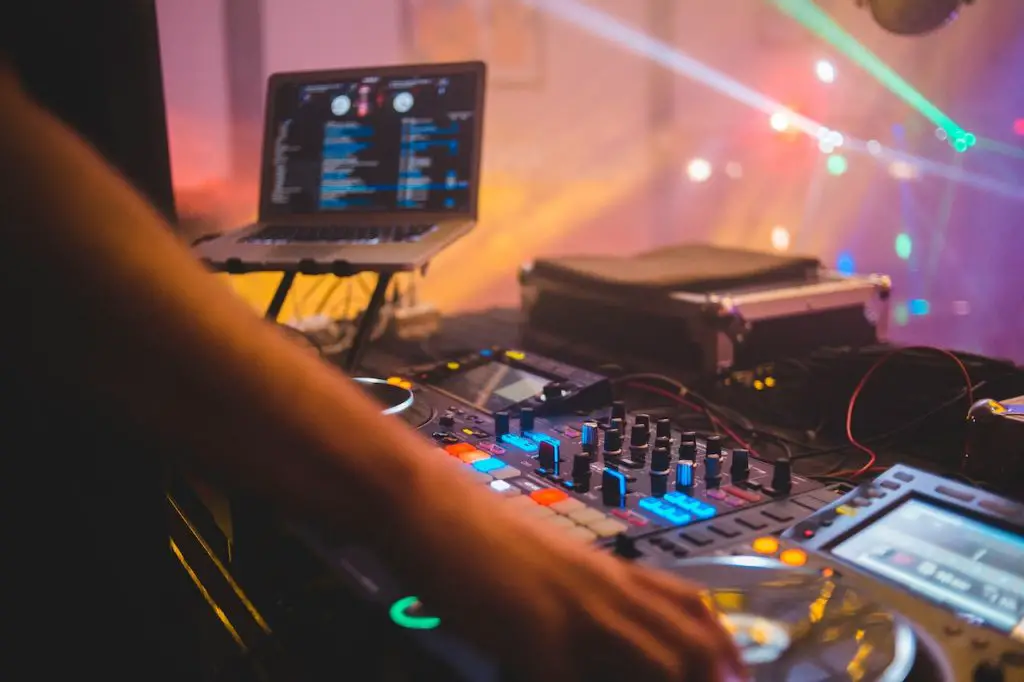
5. Graphics card
A dedicated graphics card is not strictly necessary for mixing music, but it can help with visualizations and other graphics-intensive tasks. Look for a laptop with an NVIDIA or AMD graphics card, ideally with at least 2GB of dedicated memory.
6. Connectivity
When buying a new laptop for your home recording studio, it’s important to think about connectivity and device inputs and outputs. After all, your laptop is only as good as the devices you can connect to it.
Make sure your laptop has the right ports and connections for all of your gear, including microphones, instruments, audio interfaces, and speakers. You’ll likely need at least two USB ports (one for your audio interface and one for a mouse or other peripheral), an HDMI or DisplayPort output, and a headphone jack.
Also, consider the type of connectivity your laptop offers; for example, if you want to record remotely or collaborate with other musicians, you’ll need a laptop with good wireless connectivity. So don’t neglect the little things—make sure your laptop has the right connections, and you’ll be able to record and mix like a pro.
7. Battery life
Look for a laptop with long battery life, especially if you plan to use it for mobile mixing. Aim for at least 6-8 hours of battery life.
8. Extra features
When buying a new laptop for your home recording studio, don’t forget to think about extra features that can make your recording sessions more convenient and enjoyable. For example, a touchscreen can make it easier to navigate your recording software and manipulate audio and visual elements.
A backlit keyboard can also be useful if you like to record in low-light environments, as it will make it easier to see the keys and avoid making mistakes. And if you’re always on the go, a lightweight and portable laptop can make it easy to take your setup on the road.
So don’t settle for a bare-bones laptop; consider the extra features that can enhance your recording experience and make your music even better. After all, you’re a creative genius—you deserve a laptop that can keep up with your brilliant ideas.
If you want even more tips and insights, watch this video called “Computer Requirements for Music Production” from the soundtrack.academy YouTube channel.
Frequently asked questions (FAQ)
Do you still have questions about the laptop specs you need for mixing music? Below are some of the most commonly asked questions.
How much RAM do I need for music mixing?
As a general rule, 8 GB of RAM is a good starting point for most home recording studios. This should be enough to handle basic mixing and recording tasks, as well as some light plugin use. However, if you’re planning on using more advanced software or working with large, complex projects, you may want to consider upgrading to 16GB or more RAM. This will give you plenty of headroom to experiment and create without encountering any lag or performance issues.
How much storage do I need for mixing music?
It is recommended to have at least 256GB of storage for music production. However, if you are working with a large number of tracks or high-quality audio files, you may want to consider a laptop with 512GB or more of storage to ensure that you have enough space for your projects. Additionally, you may want to consider getting a laptop with an SSD (solid-state drive) instead of a traditional hard drive. SSDs are faster and more reliable, which can be important when working with large audio files and multiple tracks.
Which is better for a home recording studio, Mac or PCs?
Both Macs and PCs can be suitable for a home recording studio, and the best option for you will depend on your personal preferences and needs. Macs are generally considered to be more user-friendly and have a reputation for being more stable and reliable than PCs. On the other hand, PCs are often more affordable and offer more flexibility and customization options. They also have a wider range of audio software available, including both free and paid options.
Conclusion
When it comes to choosing a laptop for mixing music, it’s important to consider the right specifications to ensure smooth and efficient recording sessions. Remember, you’re a creative genius—you deserve a laptop that can keep up with your brilliant ideas. So don’t settle for a subpar machine—choose the right laptop and enjoy seamless, professional-quality mixing and recording sessions. Happy mixing, fellow music-makers!
So, do you have great specs for your laptop? And did I cover everything you wanted to know? Let me know in the comments section below (I read and reply to every comment). If you found this article helpful, share it with a friend and check out my full blog for more tips and tricks on music production. Thanks for reading, and never stop making music.
Key takeaways
This article covered the laptop specs needed for mixing music. Here are some key takeaways:
- A good computer is important for music mixing because it can handle the demanding tasks involved in recording and mixing multiple tracks and using software plugins.
- A laptop can be sufficient for music production.
- More RAM is always better when it comes to mixing and recording music.
- Look for a laptop with a fast processor, preferably an Intel Core i7 or i9 or an AMD Ryzen 7 or 9.
- A minimum of 256GB of storage is recommended, but ideally, you should look for a laptop with at least 512GB.
- For connectivity, ensure you have at least two USB ports (one for your audio interface and one for a mouse or other peripheral), an HDMI or DisplayPort output, and a headphone jack.

